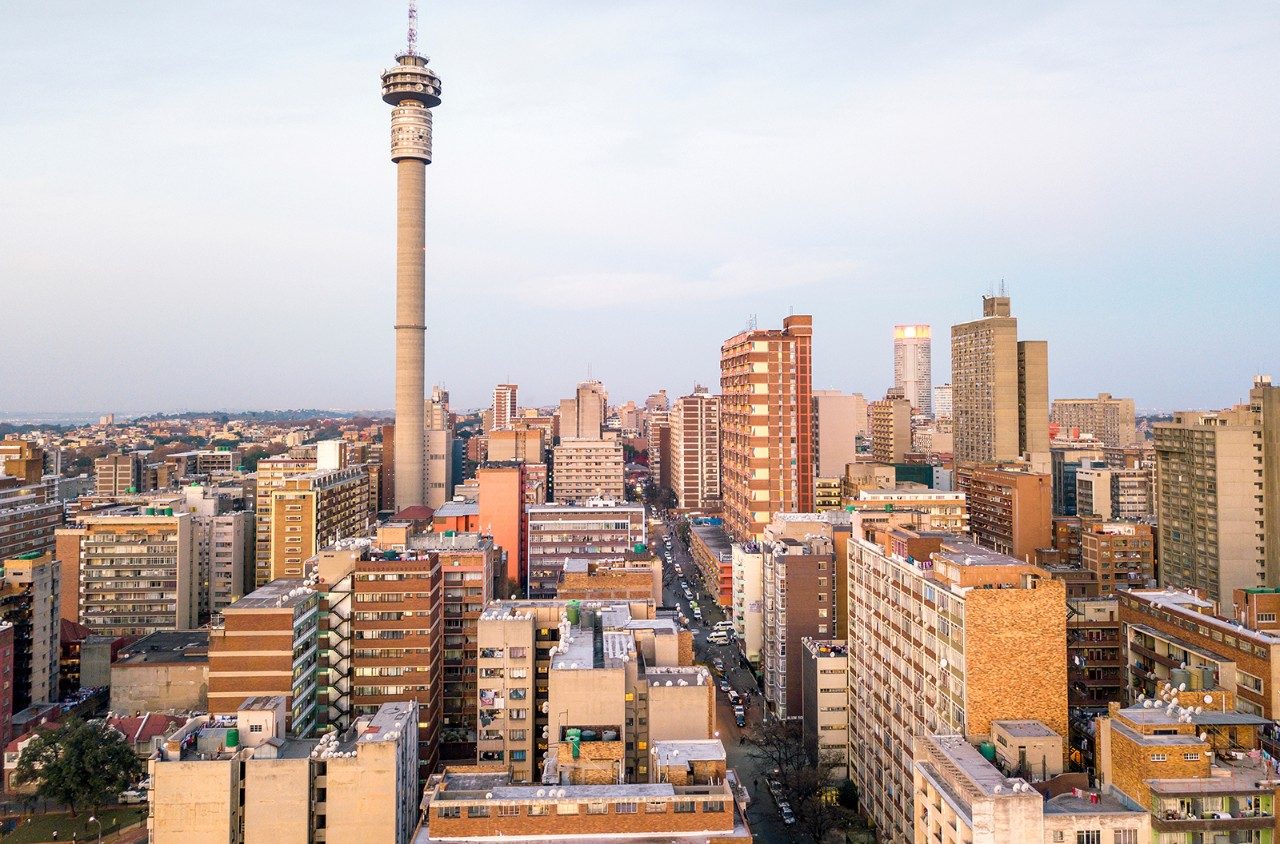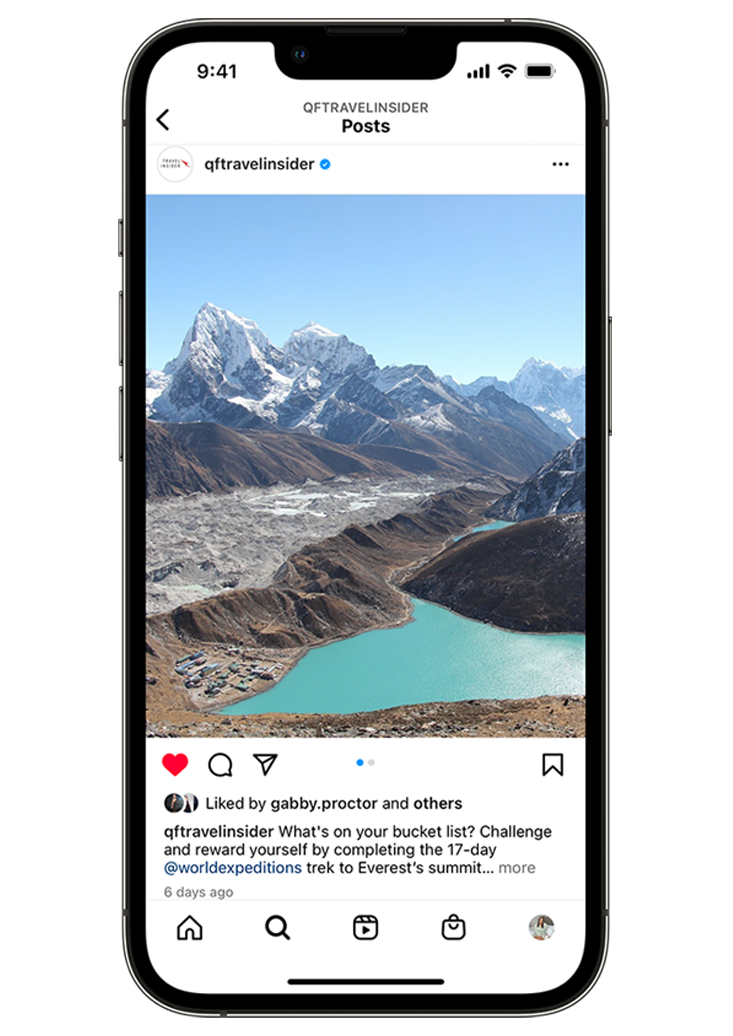Read Before You Leave – Johannesburg

Contrary to popular belief, Johannesburg isn’t South Africa’s capital – it’s not even one of three. The mistake is a fair one, though – Jo’burg is the nation’s most populous city and where the country's largest airport is based. This is where Nelson Mandela lived, in Soweto, just down the road from Archbishop Desmond Tutu – two Nobel Peace Prize winners on one street. While some visitors make a beeline for the tranquil beauty of Cape Town or the safari tours of Kruger National Park, making the time to experience Johannesburg is rewarding in its own right.
The city's unique neighbourhoods provide plenty to explore: the quiet, arty suburb of Rosebank houses vintage stores, galleries and coffee shops; Norwood is a melting pot of cultures including the old Jewish quarter and the French-speaking Senegalese community; and Soweto offers walking tours to Mandela’s house and a gut-wobbling bungee jump from between two defunct cooling towers. Gleaming Sandton is like an upmarket shopping mall, while the original CBD has undergone a hipster regeneration of theatres, barber shops, and green spaces – the city is said to be the world’s largest urban forest with more than 10 million trees. But before you traipse off to the colourful city, there is a little preparation to do. Here’s what to know before you go to Johannesburg.
Flight time to Johannesburg
Qantas flies to O.R. Tambo International Airport, Johannesburg, direct from Sydney; the flight takes about 14 hours and 40 minutes. Add an extra four hours from Perth.
Entering South Africa

Australians travelling to South Africa for less than 90 days do not require a visa. You are required to have at least 6 months remaining on your passport after your intended departure date home from South Africa, and two blank pages in your passport. If your passport doesn’t fit this requirement, you could be prevented from boarding your flight or worse: deported back to Australia upon arrival in Johannesburg.
Flying into Johannesburg
O.R. Tambo Airport is located in Gauteng, about 30 kilometres from downtown. The snazzy Gautrain (pronounced “how-train”) runs between the airport, Sandton and downtown Johannesburg. It costs about R221 one-way, while an Uber or taxi without is around R120-160, not including any tolls or surcharges.
Safety in Johannesburg
The Australian government’s Smart Traveller website recommends visitors exercise a high degree of caution in South Africa due to high crime levels. Violent crimes are common in South Africa.
Smart Traveller reports that criminals operating out of O.R. Tambo have followed tourists to their accommodation and robbed them. Avoid using currency exchange services or ATMs at the airport and instead wait until you arrive in town. Keep valuables such as cameras, jewellery and smartphones out of sight and beware the wallet inspector: criminals posing as Tourist Police (these don’t exist) may ask to examine the contents of your bags – don’t let them. Ensure you visit townships with an organised group during daylight hours and avoid isolated spots.
The general emergency phone number in South Africa is 112.
Legalities
Some important things to know include:
- Immigration regulations stipulate that parents and guardians travelling with children under 18 must carry, and be able to produce upon request, a full birth certificate. If an original cannot be produced, a certified copy will suffice, as long as it’s less than three months old.
- If a child is alone or travelling with only one parent, a document signed by the absent parent approving the travel must be produced. If applicable, a death certificate for a deceased parent must be provided, or a court order granting the travelling parent sole custody. See full details here.
- Penalties for drug offences are severe and a conviction could result in lengthy jail time.
- Although the political situation is stable, protests and demonstrations occur and can turn violent. Stay away from public gatherings such as these.
- The legal drinking age is 18.
Language in South Africa
There are 11 official languages in South Africa; one of them is English. It’s spoken throughout the country but the most common languages are Zulu, Xhosa and Afrikaans. Almost everyone is multilingual, though, so expect to chat. An excellent local word to try out? “Howzit?” meaning something like, “how’s it going?” and is used as a greeting.
Vaccine advice
Ensure all your vaccinations are up to date and consider additional vaccinations for hepatitis A and B, typhoid and rabies. Remember mosquito-borne illness such as malaria and dengue fever and tick-transmitted illnesses such as typhus are common in South Africa so pack a DEET-containing insect repellent, especially if you’re heading north to Kruger National Park after Jo’burg. See Travel Doctor for more information.
Public transport in Johannesburg

In addition to the Gautrain, there’s the Rea Vaya bus rapid transit system linking the Johannesburg downtown area with Braamfontein and Soweto. Fares are charged in kilometres travelled – from R10.50-11 for up to five kilometres through to R21-22 for 35-plus kilometres.
Many visitors choose to rent a car (see Driving, below) or rely on Uber to get around – jump into a random, unmetered taxi and you may be taken for a ride in more ways than one.
Driving in Johannesburg
If you’re planning to hit the road in a rental, don’t leave any valuables visible when you park.
If you’re renting, don’t go for something flashy. Johannesburg isn’t the place for that convertible.
One unexpected thing drivers will encounter in Jo’burg: car guards. These men, usually clad in high-vis vests, will offer you parking advice and protection from thieves while you’re away from the car. They’re not official in any capacity but locals accept them. Tip them a few rand, and more the longer you’re parked.
Money in South Africa
At the time of writing, the Australian dollar was buying around 11.37 South African rand (ZAR).
Check with your bank that you won’t be hit with extra fees when using your credit card in Johannesburg. Your Australian bank and South African ATMs will each charge you for withdrawing money from your debit card, too, so it might be worth organising a travel card (most banks have one) with low or no fees to use while you’re away.
In any case, inform your bank of your travel plans, lest overseas purchases are misconstrued as fraud and your card is cancelled.
Tipping is an accepted practice in South Africa. Expect to add between 10 and 15 per cent to restaurant and bar bills. Tip car guards a few rand, increasing the amount the longer you’re parked, and round up to the nearest R10 when tipping taxi drivers. Service stations are manned by petrol attendants who will fill up your tank and even check your tyre pressure and oil. Say thank you with about R5. For hotel porters, hand over about R10 to R20. If you take a tour, tip a little extra for guides and drivers, too. It will be appreciated.
Weather in Johannesburg
Johannesburg sits at an elevation of 1753 metres above sea level so for those accustomed to lower altitudes, it could take a few days of acclimatising to lose that short-of-breath feeling. Winter days are mild and sunny but things cool off significantly at night. During summer, things can be dry and dusty, but those blue skies can quickly yield to afternoon thunderstorms.
When to go to Johannesburg

With its mild winters and warm summers, Johannesburg is a great spot to visit all year round. Summer (December to February) tends to be the peak time for visitors, so travelling in the shoulder seasons of spring and autumn make for a quieter and more affordable stay.
Dress code
The dress code is fairly casual, but anything goes in Jo’burg. Make sure you bring comfortable walking shoes, wet-weather gear for summer thunderstorms and a warm coat and gloves for winter evenings.
Tap water in Johannesburg
The tap water is safe to drink in Johannesburg.
Insurance policy
Smart Traveller recommends travellers take out a comprehensive travel insurance policy before departing for Johannesburg.
Where to stay in Johannesburg
The majority of Johannesburg’s hotels are concentrated around its northern suburbs but Norwood and Melville are the best options if you also want to be within walking distance of great bars and restaurants. Sandton is a well-to-do area on the Gautrain line and is safe and clean. The burgeoning downtown area is also an option, with artsy CBD-fringe precinct Newtown a great choice.
Phone calls and mobile data
Before you land, disable data roaming and don’t answer incoming calls on your mobile phone if you want to keep your monthly bill in check. Invest in a prepaid travel SIM card or eSIM if keeping in touch with home is important.
If you need to make calls in Johannesburg, buy a South African SIM card for local calls and mobile data. Remember, this will only work if your phone is not locked to your Australian carrier.
Calling Australia from South Africa
To call Australia, dial +61 followed by the phone number – including the area code minus the zero. So, to call a Sydney landline telephone, you would dial +61 2 then the phone number. To call a mobile phone, use the same country code and dial the mobile number minus the first zero.
Gadgets and elecronics in South Africa
Power sockets in the South Africa have the same voltage (230V) and frequency (50Hz) as those in Australia so all your gadgets should work. However, power plugs and sockets have a different configuration (M) so an adaptor will come in handy.
Handy apps and websites
- Rea Vaya for planning your route on the bus.
- Gautrain for planning your journey from the airport.
- Uber for when public transport fails.
- Smart Traveller for safety advice.
- XE for currency conversion.
- O.R. Tambo for information on flights, weather, traffic, parking, terminal locations and airport shuttles.
- Gauteng for neighbourhood guides, events and itineraries.
- Madiba’s Journey to explore Nelson Mandela-related attractions across South Africa.

Find a flight to Johannesburg
SEE ALSO: The 15 Best Things to Do in South Africa



